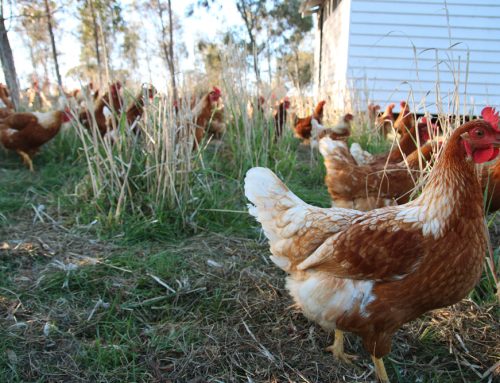Story by Tammi Jonas, co-proprietor, Jonai Farms; Committee member, Australian Food Sovereignty Alliance; spokesperson, Fair Food Farmers United, May 2014
 Fair Food Farmers United (FFFU), the Farmers’ Chapter of the Australian Food Sovereignty Alliance, brought together a small group of producers and food activists in Seymour, Victoria. Seymour is home of the Alternative Farming Expo and the wonderful Food eXchange – a group working to connect eaters and growers, while raising awareness of issues of sustainability and ethics in the food system.
Fair Food Farmers United (FFFU), the Farmers’ Chapter of the Australian Food Sovereignty Alliance, brought together a small group of producers and food activists in Seymour, Victoria. Seymour is home of the Alternative Farming Expo and the wonderful Food eXchange – a group working to connect eaters and growers, while raising awareness of issues of sustainability and ethics in the food system.
The focus — canvas issues
The focus of the meeting was to canvas issues fair food farmers are grappling with, in order to set an agenda for the year ahead. We also wanted to brainstorm workshops we might offer over the next 12 months to help connect farmers and enable them to share knowledge with each other so that everyone benefits from successful innovations in sustainable agriculture and the rapid growth of local and regional food economies in Australia. Perhaps unsurprisingly, the issues that we returned to repeatedly were around the logistics of on-farm processing, transitioning to direct sales models, and de-mystifying regulations. We ran out of time to discuss alternative lending models for agriculture, but I suspect there’s plenty in that topic of interest to quite a lot of farmers who are trying to transition to, or bring in, new infrastructure and mechanisms to take control of the supply chain. As we talked, my mind kept returning to the notes I took at Joel Salatin’s workshop back in 2010, which have informed every aspect of how we set up Jonai Farms in 2011. Joel is a model for regenerative agriculture, running the very successful Polyface Farm in Virginia < www.polyfacefarms.com>in a way that respects the land, the people who work it, ‘the pigness of the pig’, and the right of eaters to know what they’re eating.
Bits of wisdom from Joel Saletin
In particular, these bits of wisdom from Joel resonated with me:
- look after the ‘ecological umbilical’ through practices such as pasture-raised livestock in regenerative systems
- take control of further processing on-farm; and work for regulatory reform for small, lower-risk systems
- ‘hold your innovations lightly’ – no trademarks or patents – share what you learn in the interest of the public good
- identify your market boundaries and then send people to the other wonderful growers out there selling ethical food
- sell directly to people, and make sure ‘people answer the phone’.
Joel has visited Australia many times and inspired audiences across the country. It’s time for FFFU to gather our common wisdom of how Australian farmers already are feeding Australia fairly and share that knowledge through regular workshops and meetings. If your farm is a working model of the fair future of Australian farming, and you’d like to offer a workshop to help others achieve what you have, drop us a line as we’re planning a ‘train the trainers’ workshop later in the year so that we can spread the word and push this revolution on to the next level.

